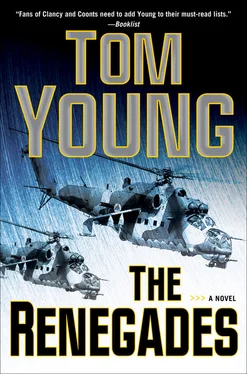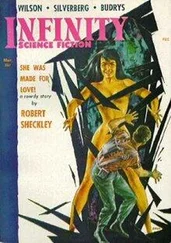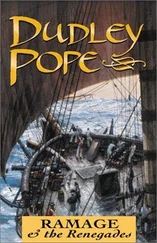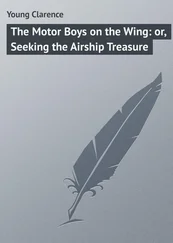Parson had narrowly escaped a beheading on camera a few years ago. The memory still gave him nightmares. And this son of a bitch had just tried to deliver him to a terrorist’s blade. An animal fury overcame Parson. He scrambled to his feet, pointed the Beretta at Aamir.
“I’ll blow your fucking head off!” Parson shouted. He held the weapon with both hands; his hands shook with anger. The muzzle danced and bounced, but it didn’t matter. He couldn’t miss at this range.
Aamir’s mouth dropped open and he froze. Parson began to squeeze the trigger. The hammer was down; Parson was firing double-action. The Beretta’s parts linked up and moved as the hammer began to rise.
“No!” Rashid said.
Damn it, Parson thought. Rashid was right. Damn it, damn it, damn it. Parson released the trigger, holstered his weapon. He couldn’t just blow Aamir’s head off, not if the man wasn’t resisting anymore. But he could sure as hell kick his ass.
Sergeant Sharif, in the flight engineer’s jump seat, sat in Parson’s way. Parson reached over Sharif’s shoulders, popped the quick-release on Sharif’s harness, and pulled him out of the cockpit by the armpits. The flight engineer’s leg left gouts of blood on his seat. Parson put him down in the cargo compartment. Sharif’s face twisted in agony. Blood ran along the canted floor to the crew entrance door and dripped onto the ground. The two civilian passengers stared, one groaning in pain and holding his leg.
Parson grabbed Aamir by the front of his survival vest, dragged him over the jump seat, and threw him to the floor.
“You wanted to let them cut my head off?” Parson yelled. Picked him up by the collar, slammed him against the steel plating. Aamir still wore his flight helmet, so the manhandling did little damage.
That angered Parson even more. He aimed a straight punch, rammed his fist into the copilot’s cheek. That felt a little better. He drew back to hit him again.
Aamir held up his hands toward Parson, pleading gibberish.
“His son,” Rashid said. “He keeps talking about his son.”
Whatever. Parson wasn’t listening. He kneed Aamir in the groin. The copilot gagged, doubled over. Parson pushed him upright. Grabbed him by the collar with one hand, unsnapped his helmet strap with the other. If he could get the helmet off, he could hurt that bastard worse.
One of the civilians spoke up. “Sir,” he said, “what are you doing?”
“I’m gonna bust his head…”
Damn it, Parson thought. A witness. If Gold were here, she’d have stopped him, too. And she’d be translating all this babble.
Parson still held Aamir by the collar. Couldn’t decide whether to beat him up more. “All right, Rashid,” Parson said, “what the fuck is he saying?”
“Insurgent have his son. He want trade for you.”
“Who has his son?” Parson asked.
“Bad men. Maybe Black Crescent. Maybe no.”
Parson had no children. He’d never even been married. But he knew how it felt to be responsible for someone else. He shook Aamir by the collar.
“Why didn’t you tell somebody, shithead?” Parson asked. Shoved the copilot onto a troop seat. “Don’t you fucking move.”
Rashid climbed from the cockpit, removed his helmet. Gave orders in Pashto, and the crew chief found duct tape and parachute cord in his tool box. Rashid took the cord.
“We tie him,” Rashid said.
“Damn straight we tie him,” Parson replied. He grabbed Aamir’s hands, yanked them together behind the copilot’s back, held them tight as Rashid bound them with the parachute cord.
Parson tore off a strip of duct tape, nearly slipped in Sharif’s blood on the floor. Slapped the tape over Aamir’s mouth.
“Sir,” Reyes said, “if he’s congested, that’ll keep him from breathing.”
Parson started to tell Reyes to mind his own damned business. But the man was right. Parson tore the tape from Aamir’s face. The copilot cried out.
“Quit whining,” Parson said. He wadded up the length of duct tape, threw it down. Tore off a longer strip and taped Aamir’s boots together.
Reyes had been tending to Sharif’s injuries; now the PJ opened an Israeli bandage. The device consisted of a length of elasticized cloth with sterile pads on one side and a closure bar on the other. Reyes adjusted the pads to cover Sharif’s wounds, then wrapped the cloth leader several times until he locked it down with the closure bar.
The uninjured civilian spoke up again: “We’ll need a medevac for that gunshot wound.”
Who the hell was this guy to be putting in his two cents? For a moment, Parson wanted to tape the civilian’s mouth, too. But at least the man’s advice made sense. Seemed to know the lingo, too. Maybe the guy wasn’t a complete idiot.
“Yeah,” Parson said. “I know it.”
All he really wanted to do was beat Aamir to death. But other things needed doing. He tried to think past his anger. Regaining his self-control was like recovering an airplane from a spin. Part of you wanted only to pull the nose up. But if you wanted to live, you had to put the nose farther down . You had to use your head, not your gut.
Parson ducked through the crew door to look outside. Nobody had installed the boarding ladder, but he didn’t need it—the landing gear had collapsed on impact, and the helicopter’s deck rested only about a foot off the ground. Parson’s knees hurt from falling during the hard landing, and that made his limp worse. Instead of jumping right out, he stepped down from the aircraft one boot at a time.
Small cumulus raced overhead. But other clouds remained stationary. Roll clouds, like long cigars, formed over the ridges. Far above them, Parson saw a layer of mother-of-pearl. Not good. Signs of severe turbulence, with updrafts and downdrafts approaching five thousand feet per minute.
So the winds were picking up, but at least the visibility stayed decent. He reached inside the Mi-17 and pulled the satphone out of his helmet bag. Somehow his laptop still worked, still set up with the moving map display, so he jotted down the coordinates it showed. Then he turned off the computer and punched the number for command post at Mazar.
“This is Parson,” he said when the duty officer answered. “Golay One-Eight is down.” He gave coordinates for the rock ledge where the helo had crash-landed.
“Do you have casualties?”
“One gunshot wound to the thigh. Maybe one broken leg.” Parson reported Aamir’s attempt to commandeer the Mi-17, the struggle for control. Relating the story made him angry all over again. He wished his brain could work like some aircraft systems, that he could put his emotion switch on BYPASS.
“Oh, shit,” the duty officer said. “Not again.”
Parson knew what the guy was thinking. The year before, an Afghan officer had opened fire on American advisers during a meeting at the Kabul Airport. He’d killed eight USAF troops and an American contractor before taking his own life. The Taliban had claimed him as an agent, but his family denied it and said he’d had money problems. Other reports suggested the officer may have been involved with suspected opium trafficking.
Nearly all members of the Afghan Air Force were like Rashid—competent, committed, hardworking, and trustworthy. Their vetting included a family background investigation, drug screening, and record reviews. Recruits even had their biometric data checked against a criminal database. But this was a different situation, and Parson knew no amount of background checks could have prevented it. In Afghanistan, nothing was simple and nothing was safe.
So where exactly had Aamir hoped to land? The Mi-17 hadn’t gone down where he wanted it, but he’d tried to put it somewhere around here. Parson realized the bad guys who’d waited for Aamir to deliver him might be close.
Читать дальше












